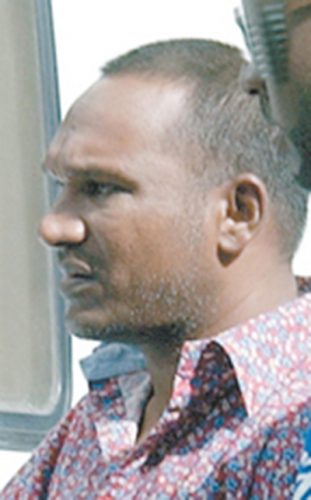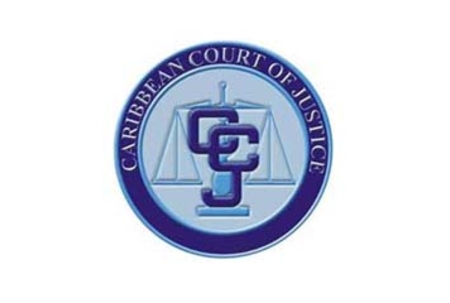The Caribbean Court of Justice (CCJ) on July 20th provided reasons for denying special leave on June 30th to two Guyanese men who were seeking to appeal their drug convictions in Barbados.
The apex court made it clear that the function of the requirement to obtain special leave to appeal is to ensure that unmeritorious appeals do not go before it.
Specifically, the court said that “a dissatisfied litigant is not allowed to appeal further simply because they are dissatisfied with the result,” especially where the intended appeal lacks merit. This ruling will have resonance with recent cases here pertaining to the March 2nd general elections.

Back in June, the court heard two applications for special leave to appeal against their convictions from Rohan Rambarran and Gavin Green and refused them both.
Rambarran, Green and others were held in November 2005 after they smuggled into Barbados 91.3 kilogrammes of cannabis and 119.4 kilogrammes of cocaine in hollowed out logs of wood. The shipment originated in Guyana.
In December, 2009, Rambarran was sentenced to 25 years for trafficking in cannabis and 30 years for trafficking in cocaine.
Green was sentenced at the same time to 47 years in prison – ten years for possession of cannabis; ten years for possession of cocaine; 12 and 15 years for trafficking of cannabis and cocaine respectively. The Barbados Court of Appeal in August last year dismissed their appeals against the convictions but reduced their sentences and they were both released.

Rambarran then sought to appeal to the CCJ on grounds that all related to the evidence.
According to court documents, he principally wished to argue that the trial judge should have upheld his submission of no case to answer and that the evidence as to the identification of the drugs was totally discredited and otherwise unreliable.
Green on the other hand, wished to appeal against the directions the trial judge gave in relation to corroboration and the right against self-incrimination.
The CCJ noted that the Court of Appeal dealt adequately with all the issues that Rambarran wished to argue on a further appeal and thus it was satisfied that there was no potential miscarriage of justice or arguable error of law.
The court of last resort said that in essence, in the case of Rambarran, the Court of Appeal found that there was sufficient and reliable evidence on which a jury could properly convict.
In relation to Green, the CCJ said it found that there was no substance to his contention that the trial judge should have given a stronger direction on how to treat the sworn testimony of a co-accused or on his alleged mistreatment by the police.
In the July 20th judgment the CCJ said “It was clear, therefore, from the written and oral submissions and the papers on the court file that these applications satisfied none of the requirements to qualify for the grant of special leave.”
The court reminded that it had laid down those requirements in the case of Doyle v The Queen [2011] CCJ 4 (AJ) which it said has consistently been applied in decisions that followed.
Quoting from Doyle the court noted where it had said, “Generally, this Court will only intervene in a criminal case in circumstances where a serious miscarriage of justice may have occurred in the court below or where a point of public importance is raised and the applicant persuades the Court that if not overturned a questionable precedent might remain on the record. In such a case the grant of leave to appeal is not necessarily an indication that the Court agrees with the point, but only that the point of law is arguable.”
The court underscored that the legislative condition that special leave to appeal must be obtained to appeal in criminal cases (as well as in some civil cases) is part of the fundamental tenet of law that there must be an end to litigation.
It went on to note that having been given a right of appeal to the Court of Appeal, a dissatisfied litigant is not allowed to appeal further simply because they are dissatisfied with the result. That limitation on the right to appeal the CCJ said, protects opposing parties against the burden of further litigation, which it said is all the more burdensome if an appeal is unmeritorious.
The court went on to say that the limitation also guards the legal system, including the civil and criminal law departments of the State, and its judicial resources against undue demands.
“The function of the requirement to obtain special leave is to ensure that unmeritorious appeals go no further but that arguable appeals are permitted to proceed,” the court said.
Satisfied on the basis of well-established principles, that there was no justification for permitting a further appeal, the CCJ refused Rambarran and Green’s application.
The matter was presided over by President of the court Justice Adrian Saunders, along with Justices Jacob Wit, Maureen Rajnauth-Lee, Denys Barrow and Peter Jamadar.






